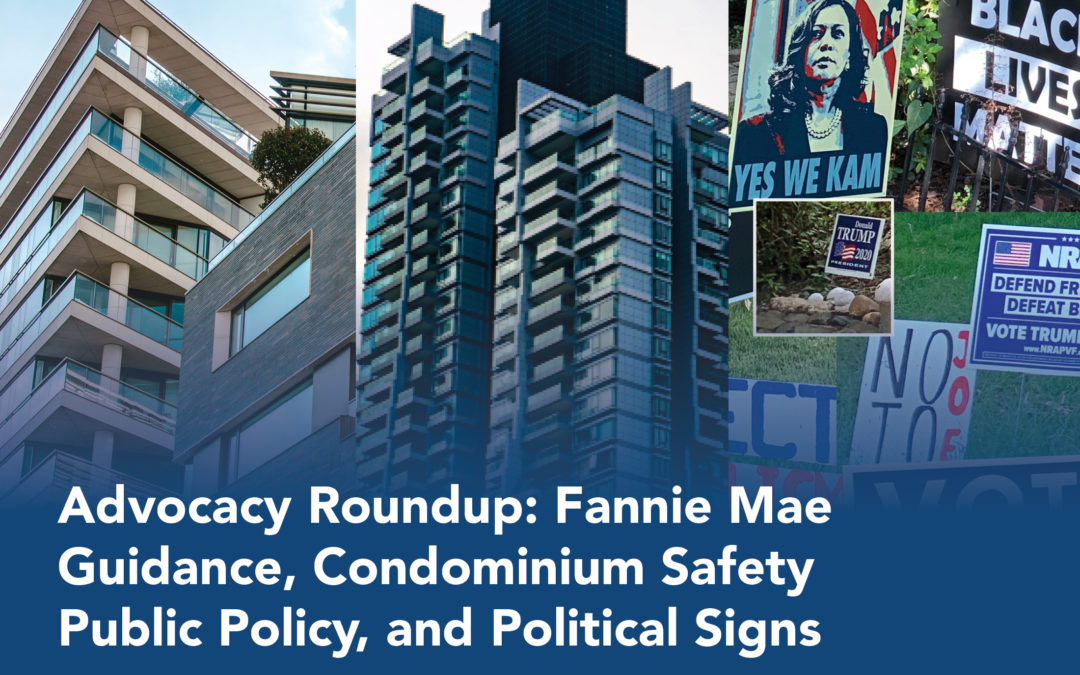CAI released important and substantive information and resources in the past couple of weeks that are worth repeating. Below is a summary of important details on these topics; click on each headline for the full articles.
Fannie Mae Released Temporary Requirements for Condominiums and Cooperative Projects: In response to the Champlain Tower South condominium collapse in Surfside, Fla., Fannie Mae released requirements for lenders and appraisers to ask more questions to those completing lender questionnaires (community association boards, attorneys, and community association managers) about building safety, maintenance, special assessments, and reserves.
While the requirements go into effect in January 2022, communities have asked if their condominium and/or management company are aware of any conditions or deferred maintenance that may negatively impact the safety, structural soundness, habitability, or functional use of individual units. If yes, supporting documentation should be provided, such as architectural and/or engineering reports, insurance inspections, notices of pending or active building code violations, fines or liens from a local building authority, special assessments levied for repairs related to these issues, and/or a reserve study prepared by an independent third party.
CAI Board of Trustees Approves Condominium Safety Public Policy: After four months of work by hundreds of industry experts and volunteers, CAI released the Condominium Safety Public Policy Report with public policy recommendations for legislators to consider as they focus on legislation that addresses structural integrity in high-rise communities. On November 9, legislators from nearly 30 states joined CAI’s Condo Safety Public Policy Forum to discuss these recommendations. Access the report here.
Political Signs: Many states held elections in November and political signs can be seen on community yards. When do they need to come down? What is the authorizing law? Click here to find out.



